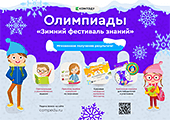Confirmed:__________________
III term, # 49 Short Term Plan
| The teacher of the subject: | Yerzhanova Rima Anuarovna
|
| Grade / Date | 10 Ә – 10.III 10 A, Б, B – 11.III
|
| The theme of the lesson: | BRITISH MEALS (Meals & Meal times) |
| The reference: | Т. Аяпова. English, 10 сынып оқулық, Мектеп баспасы, 2014 |
| Goals: | *All learners will be able to: Comment on our Meals & meal times in the UK come up with a definition of the new words and their meanings |
| The results of learning: | * Most learners will be able to: say why they think the statements about meal times given are wrong/right in their opinion give example with real & unreal conditionals, own questions * Some learners will be able to: critically analyse a statement about meals say whether it is justified or scaremongering. * Students can make a dialogue on the new words which have studied today’s and previous lesson |
| Key words: | * breakfast, lunch, dinner, supper |
| Grammar: | * Conditionals |
| The basic ideas: | * BRITISH MEALS (Meals & Meal times) * Ex 1. Some people have their biggest meal in the middle of the day and some have it in the evening, but most people today have a small mid-day meal - usually sandwiches, and perhaps some crisps and some fruit. We have three main meals a day: Breakfast - between 7:00 and 9:00, Lunch - between 12:00 and 1:30 p.m. Dinner (sometimes called Supper) - The main meal. Eaten anytime between 6:30 and 8:00 p.m. (Evening meal) Traditionally, and for some people still, the meals are called: Breakfast - between 7:00 and 9:00, Dinner (The main meal) - between 12:00 and 1:30 p.m. Tea - anywhere from 5:30 at night to 6:30 p.m. On Sundays the main meal of the day is often eaten at midday instead of in the evening. This meal usually is a Roast Dinner consisting of a roast meat, Yorkshire pudding and two kinds of vegetables. * Ex 2. What is a typical English Breakfast? Most people around the world seem to think a typical English breakfast consists of eggs, bacon, sausages, fried bread, mushrooms and baked beans all washed down with a cup of coffee. Now-a-days, however, a typical English breakfast is more likely to be a bowl of cereals, a slice of toast, orange juice and a cup of coffee. Many people, especially children, in England will eat a bowl of cereal. They are made with different grains such as corn, wheat, oats etc. In the winter many people will eat "porridge" or boiled oats. The traditional English breakfast consists of eggs, bacon, sausages, fried bread, baked beans and mushrooms. Even though not many people will eat this for breakfast today, it is always served in hotels and guest houses around Britain. The traditional English breakfast is called the 'Full English' and sometimes referred to as 'The Full English Fry-up'. *Learners critically analyze the following questions. - When & how do you celebrate your birthday? |
| Methods of the lesson: | 1. New approaches to teaching and learning. 2. Learning to think critically 3. Assessment for and of learning 4. Using ICT in teaching 5. Teaching talented and Gifted children 6. Management and leadership of learning 7. Responding to age related differences in children in teaching and learning, *Venn diagram, KLWK Chart, Association, INSERT, Brainstorming |
| Exercises: | Ex I, II, III |
| Self-assessment: | S1-S2-S3 etc |
| Reflection: | Find out: What did they learn during the lesson: e.g. new vocabulary, similar words in English, facts and opinions about meal times in the UK & KZ What skills did they develop? e.g. critical analysis, reflecting on the theme meals in our country Has this made them look at the meals in the UK & KZ in a new light? (reflection) |
| Homework: | BRITISH MEALS (To retell) |
| 1.The organization Moment: | Divide them in groups & prepare their psychological ability. Brainstorming | 3-5мин |
| 2. Application. Work with new words: | Work with textbooks, work on new words. Ex I – III | 5-13мин |
| 3. Main part. To make up your own diagram, stories, dialogues, give own opinions and other activities | Project work. Work with pictures. To guess riddles etc. Ex I. Work in pairs. Ex II | 13-20мин |
| 4. Role-playing. Work with dialogues: | Ex II, III Express your opinion & find the reasons to prove it. | 20-40мин |
| 5. Conclusion: | Self-assessment and to write own reflection. KLWK, What have I learnt? What do I want to know? | 40-45мин |
|
|
|
|
|
|
|
|





